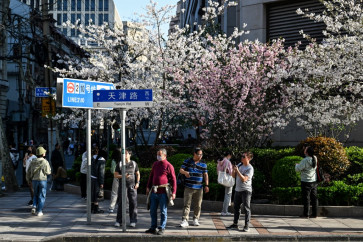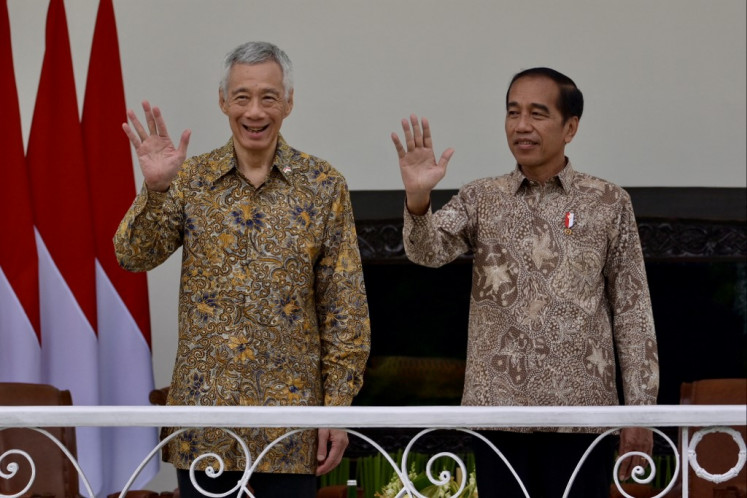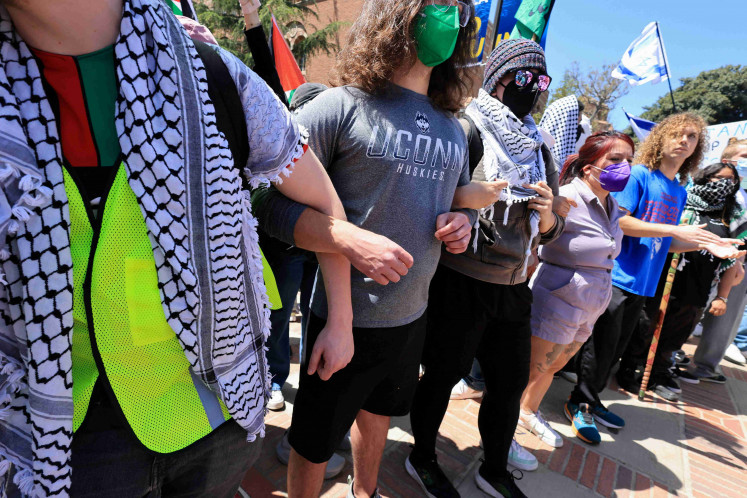PPATK seeks stronger preventive powers
Ready to pose: Indonesia’s third president BJ Habibie (center) talks with the chairman of the Financial Transaction Reports and Analysis Centre (PPATK) Kiagus Ahmad Badaruddin (right) and former chairman of the center M
Change Size

R
span class="inline inline-center">Ready to pose: Indonesia’s third president BJ Habibie (center) talks with the chairman of the Financial Transaction Reports and Analysis Centre (PPATK) Kiagus Ahmad Badaruddin (right) and former chairman of the center M. Yusuf (left) after attending an event to commemorate PPATK’s 15th anniversary in Jakarta on Monday.(JP/Dhoni Setiawan)
For its 15th anniversary on Monday, the financial intelligence agency wants one thing, more power to detect any potential financial offenders and then restrict their movements down the road.
The Financial Transaction Reports and Analysis Centre (PPATK) plays a pivotal role in providing evidence of financial transactions related to criminal offenses and money laundering as mandated by the 2002 Money Laundering Law.
For its anniversary, the center wants to tackle cases involving financial transactions such as corruption, narcotics and terrorism right from the upstream by strengthening preventive measures through a systemic approach.
“People must know that there is a situation that won’t allow criminals to grow. Such as establishing a database, so that state officials will know that they are being monitored, wherever they go,” PPATK deputy chief Dian Ediana Rae said on Monday.
“We are building a system that discourages [people] from committing crime.”
The anti-money laundering agency drew up a list of politically exposed persons (PEPs) in January comprising officials from the executive, judicial and legislative branches of the government in order to spot graft and money-laundering offenses.
The center plans to strengthen the PEP database hoping to achieve earlier detection if any irregularities are detected.
“Therefore we can create a strengthened prevention climate that can help a quicker and more efficient law enforcement,” he said adding that it took collaboration with various parties to build the system.
The PPATK currently monitors the accounts and transactions of around 4,300 people on the PEP list.
The monitoring was vital, he said, as corruption involved many people in related circles like spouses, children or assistants. The mechanism would still be conducted under secrecy to help law enforcement officials in taking the necessary legal steps.
However, Dian admitted that the PEP list still had weaknesses. It cannot identify cash transactions involving proxies that benefit officials on the list, as cash transactions cannot be recorded in the financial system.
Moreover, the center also aims to strengthen cooperation among members of the Egmont group, an international forum for financial intelligence units for the fight against money laundering and the financing of terrorism to reveal money being kept overseas.
From the data collected by the PPATK, the agency could only submit reports on its research detailing potential offenders to law enforcement institutions such as the National Police, Corruption Eradication Commission (KPK), Attorney General’s Office (AGO), and National Narcotics Agency (BNN), among others.
Even then, data from the center is often not followed up by the aforementioned institutions.
“There is a disparity, our analysis reports sent to the legal enforcement officers are not all being realized,” Dian said.
Agustinus Pohan, law professor from Parahyangan Catholic University, lambasted the weak coordination among state offices. He said law enforcement officers often failed to follow up on reports provided by the center.
Meanwhile, Zainal Arifin Mochtar, the director of Gadjah Mada University’s Center for Anticorruption Studies (Pukat) said the PPATK needed to push stronger for their recommendations to be followed through by law enforcement agencies.
“The problem is that it [the PPATK] is not strong enough in enforcing their recommendations. The PPATK’s findings need to be followed-up,” he told The Jakarta Post on Monday.
He added that the PPATK also needed to strengthen its cooperation with banking watchdog institutions, namely the Deposit Insurance Corporation (LPS), Financial Services Authority (OJK), Finance Ministry and Bank Indonesia to effectively perform its duties. (mrc)









